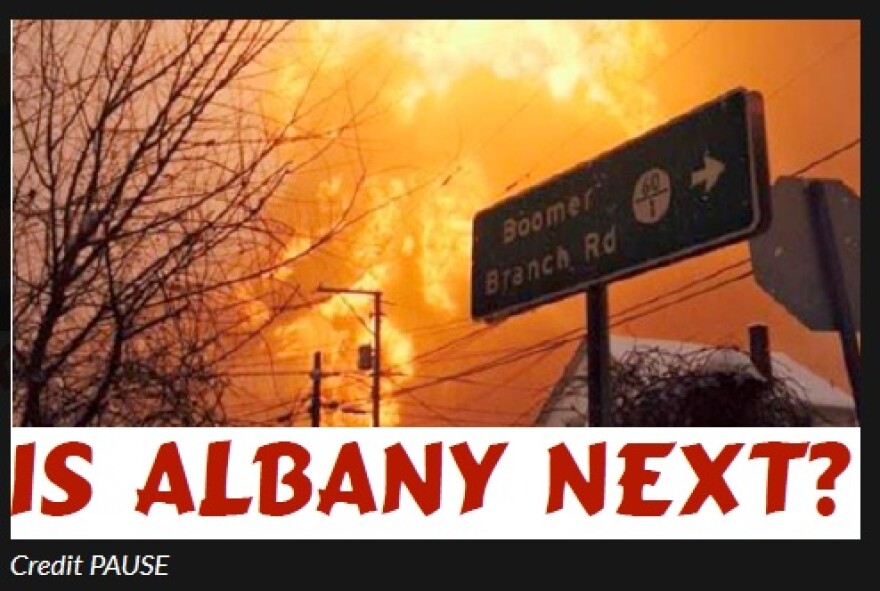After years of uncertainty, Global Partners this week withdrew its application to install a crude oil heating facility at the Port of Albany. WAMC's Capital Region Bureau Chief Dave Lucas looks back at the long process leading up to the decision.
Tanker trains were commonplace in Albany's South End, sometimes parked on tracks a few feet from housing units belonging to Ezra Prentice Homes, a concentration of apartment buildings along South Pearl Street.

Safety concerns jumped on the fast-track immediately following the July 2013 oil train derailment that killed 47 people in Quebec. U.S. Senator Chuck Schumer appeared in downtown Albany beside then-Mayor Jerry Jennings, saying shipping oil has economic benefits, but must be done safely. "And while this has fueled economic activity in and around the Port of Albany, we don't want it to stop these freight trains, which could carry up to 3 million barrels of oil in a single train, could cause substantial risk if they derail. Especially if they derail in a populated area."
By year's end, Ezra Prentice residents were mobilizing. Albany Common Councilwoman Dorcey Applyrs told WAMC the local community feared Global's plan to build a 2,600-square-foot heating facility at the port's railyard to heat crude being pumped from tanker cars into storage tanks. "Quality of life issues, water and air quality, a potential invitation for an oil spill."
In the weeks and months that followed, federal andstateagencies conducted random oil traininspections. There were sporadic oil-train derailments across America. Advocates warned transporting Bakken oil by rail was an unacceptable risk as politicians scrambled to expedite laws addressing crude oil transportby rail.
In March 2014, Albany County Executive Dan McCoy issued a moratorium on the expansion of the processing of crude oil at the Port."The tar oil that comes down from Canada is pretty stable until you heat it up. And then you got the light oil that comes from Dakota which is very explosive on the tracks. The health and safety of our residents come first, before any expansion," said McCoy, who vowed Global "will never build a boiler."
Albany firefighters drilled for an oil train disaster.
In May 2015, the U.S. Department of Transportation issued long-awaited rules on oil train cars, now regarded as dangerous — prone to accidents and explosions near population centers.
Albany-area activists gathered outside the Governor's Mansion. McCoy sent a letter imploring then-U.S. Transportation Secretary Anthony Foxx to invoke emergency powers to clamp down on the tankers. A daylong summit on crude oil transportation was held at the College of St. Rose in Albany.
The following May, 1,500 "climate activists" marched from Lincoln Park to the Port as two individuals stopped one of the trains carrying North Dakota crude oil by suspending themselves from a railroad bridge over the Watervliet Reservoir in Guilderland.

On July 29th, 2016, the EPA issued Global Partners a notice of violation of the Clean Air Act.
Citizens ramped upcommunity outcry. The Sierra Club got involved. Aaron Mair was the club’s National President. "This is an environmental injustice horror occurring right within this district."
Both sides stood their ground until Tuesday, when Global Partners blinked. McCoy was elated: "So, Global right now is gonna be doing outreach throughout the community, to talk to the stakeholders, talk to the community members, and reassure us that they're not puttin' boiler in. They're gonna reduce the oil coming through the Port of Albany and look at what will work, what will be a happy medium for their company and for the residents here of Albany County."
Global spokespeson Liz Fuller says the firm plans to "resubmit a renewal application with modifications later this year. The changes to the permit will include a reduction in the amount of crude oil handled through the terminal and will not include a system for the heating of crude oil."






